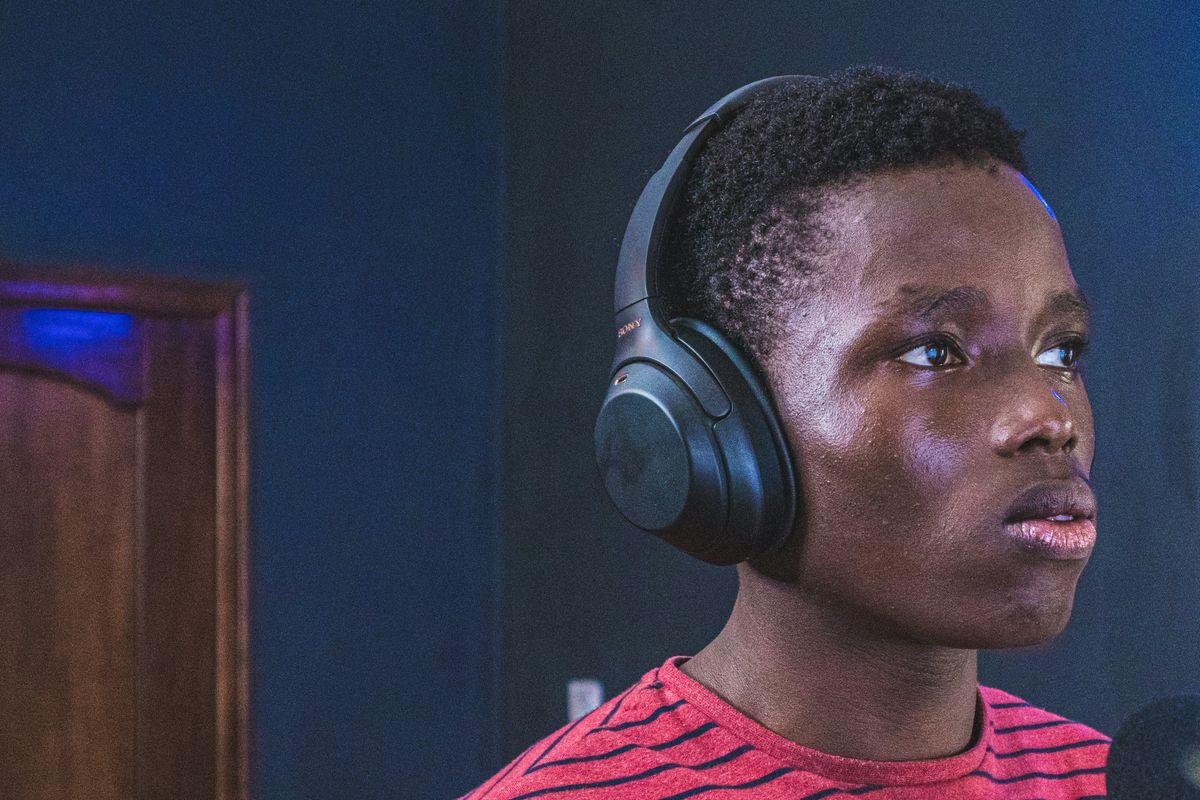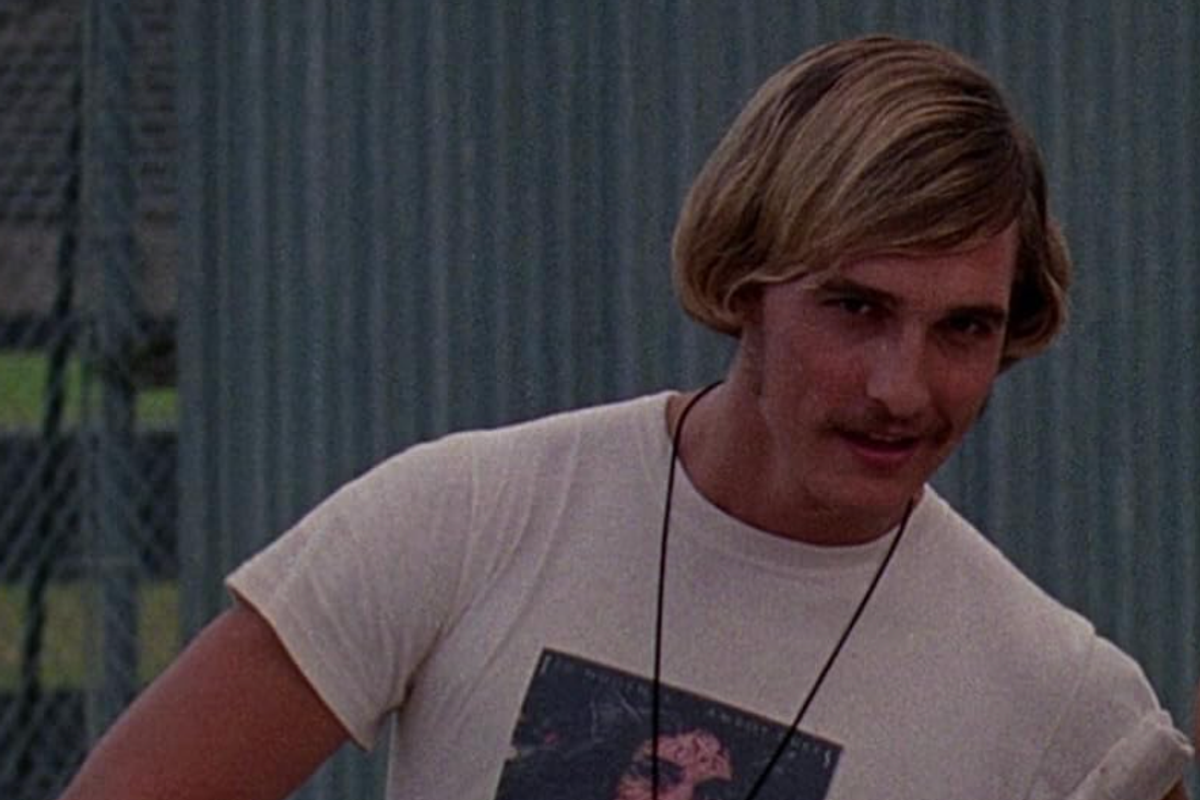Why certain sounds don't just annoy me, they enrage me. Here's how I learned to cope with my Misophonia
"How do people even make all these noises?"

A woman plugs her ears. Another person eats noodles.
Have you ever just been minding your own business at a restaurant, trying to eat your turkey sandwich in peace, when the person next to you begins to slurp their soup with a force louder than a spaceship leaving the atmosphere? Some people would only be a tad bit irritated by the rudeness. Better—some wouldn't even notice. I, on the other hand, am outraged.
And it's not just soup. The weirdest sounds grate on me. The light tapping of a laptop keyboard? Furious. A mild golf clap, especially on television? Fuming. The ever-so-gentle crushing of a plastic water bottle? Seething. And for the longest time, I thought I was just a run-of-the-mill, curmudgeonly jerk. (Jury is still out on that.)
@doctorsood Do you have misophonia?
It wasn't until about a decade ago that I happened upon the word "Misophonia." On the nonprofit website DifferentBrains.org, it's explained that it was coined by Pawel and Margaret Jastreboff in 2001 and references a "disorder characterized by extreme sensitivity to 'pattern-based sounds.'"
The "why" of it is a bit more interesting. "The underlying causes of Misophonia are unknown, although there are numerous areas of speculation, most of which concern aberrant associations between auditory pathways in the brain and the amygdala (which mediates the fight/flight response)."
- YouTubewww.youtube.com
Many researchers associate it with anxiety, and some even suggest there's a link between this disorder and intelligence. Neel Burton, M.A., M.D., wrote a piece for Psychology Today entitled, "Hate Noise? You Might be a Genius where he suggests" that there are definitely interesting connections. In recent years, researchers at Northwestern University have found that real-world creativity (although not, interestingly, academic test scores) may be associated with a reduced ability to filter 'irrelevant' sensory information. 'Leaky' sensory gating may help our brains integrate ideas that are outside the focus of our attention and thereby promote associative and creative thinking. But if these extraneous ideas are, well, noise, it can also cripple us."
Burton also notes that misophones are in excellent company, stating, "Kant hated noise, as did Proust, Kafka, and Darwin—and even, ironically, Wagner. Kant fled his lodgings on account of a crowing rooster, and Proust went so far as to line his bedroom with cork. Plato, Aristotle, and Epicurus secluded themselves in large private parks, and had only to contend with the baby-like cries of hedgehogs and maybe the murderous screams of vixens."
On the subreddit r/Misophonia, there are entire threads discussing the various ways this disorder uniquely affects people. One person asks (and you can feel their frustration through the keyboard): "How do people even make all these noises when they eat???"

Sounds of eating is their trigger, and when describing how it makes them feel, they, in part, write: "It makes me feel physically sick to hear, to the point where I have to wait for them to finish eating before I can even start. Sometimes I want to scream at them and tell them to slow down, keep their lips closed while eating, and stop making those hideous, beastlike noises but I know it would make me look unhinged. I just don't understand if there's something physically different about them that makes their eating sounds loud and sloppy."
Many on the thread are equally enraged by these kinds of sounds. But one points out something I noticed too: sometimes it's not the sound itself, but the person making it. When I was younger, if one person was crunching ice, it was fine. But when one particular person did it—it sent me!
This commenter shares, "The only person that doesn’t consistently set me off is my son. He chews with his mouth open a lot due to his teeth coming in so crazy braces aren’t even going to help. He tries really hard to be quiet and usually is, thankfully. But as soon as it starts to make me crazy, I remind myself he has no option. Anyone else, I have a very difficult time not letting it make me have to leave the room. No, I don’t eat out."
Good news? There are helpful skills that can calm those pesky triggers. Cleveland Clinic first gives pretty obvious solutions like "identify the noise that bothers you and minimize or prevent hearing it." Well YEAH.
But they also provide more tangible solutions like getting treated for "misophonia-related conditions, such as anxiety or OCD." They also note ways in which people can adapt, including:

- "Earplugs or noise-canceling headphones/earbuds."
- "Listening to something to keep your brain’s hearing-related processes focused on something other than listening for a trigger sound."
- "Noise generator sounds (especially white, pink or brown noise sounds)."



 Student smiling in a classroom, working on a laptop.
Student smiling in a classroom, working on a laptop. Students focused and ready to learn in the classroom.
Students focused and ready to learn in the classroom.
 Matthew McConaughey and Shawn Andrews in Dazed and Confused (1993)Facebook
Matthew McConaughey and Shawn Andrews in Dazed and Confused (1993)Facebook 
 A UPS truck with package deliveries.Image via Wikipedia
A UPS truck with package deliveries.Image via Wikipedia
